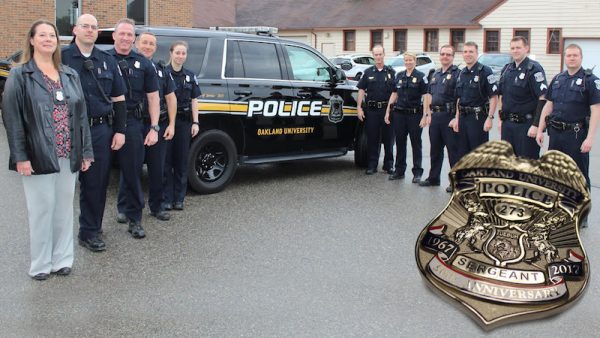Lack of pettable dogs increases depression, study says
Everywhere I go, I see their faces. Those therapy dogs which I miss so much.
Not only did COVID-19 rob young people’s prime years, it also robbed them of their emotional stability.
A recent Oakland Post study revealed that students far and wide across OU’s campus are suffering from depression at extremely higher rates than normal, and our scientists have discovered the crux of it all – doggos.
Otherwise known as Pupperus Flufficus, the animal we know today as “dog” was once revered in the ancient norse civilizations for their healing powers. The Jarls of old would worship the four-legged sunshine-bringer for its unique quality to erase negativity with a single tail wag.
Over the years, people gradually began learning more about the species known for slobber and snuggles, and they adopted them as pets, bringing them into their family in hopes of good fortunes.
Each semester, Kresge library is covered in canines as exam season approaches. A therapy dog session is almost mandatory every year – but when students needed them the most, they disappeared.
Oakland Post scientists have revealed the truth through intense observational studies. From our data, approximately 100% of students are feeling more depressed than in previous years, and 99.8% of students wish they could just pet one friendly dog in their favorite library. The other .2% were cat people.
Now, the students are the ones suffering, missing out on their bi-annual revival from their four-legged therapists.
“I really miss those therapy dogs,” Tock Sikmasculinity said. “They were the only thing keeping me sane, since society has taught me not to show any emotion.”
Grades from 2020 are reportedly all Ds, for doggos. The Office of the Registrar is scrambling to discover some way to replicate therapy dog sessions in a safe way.
But, for some, it may be too late. Recent information from Dr. Anthony Fauci has stated that humans need 1-2 interactions with dogs per week to maintain sanity, especially during traumatic times.
Not only is Oakland starved of therapy dog sessions, the need for social distancing has also eliminated drive-by dogging.
Drive-by dogging, also known as DBD, is when a dog and their human are on a walk and encounter a stranger who wishes to pet the dog. DBD encounters are at an all-time low, the only other DBD drought occurred in 2000, when The Baha Men released “Who Let The Dogs Out.”
“Ever since 2000, society has been working back to the mean as it pertains to DBD encounters,” scientist Nathan Dogg said. “We haven’t seen something on this scale since that wretched song came out, and everybody was sick of dogs.”
Ironically, now, everybody is sick of a life without dogs. The bi-annual therapy dogs and roaming pillars of joy are less accessible, and the students are the ones feeling the pain. However, professors are not immune to the negative effects of no pets, either.
“This has been especially hard on us as educators,” biology professor Kay Nyne said. “We’re people too. We love petting dogs as much as the next person.”
In a time period where students are suffering, professors are laboring over how to help them and administration is desperately searching for answers to fill the void left from the canine conquerors, there does remain a glimmer of hope.
“Once it’s safe, there will not be a square foot in Kresge Library without a dog permanently assigned there,” librarian Paige Turner said. “I can assure you, the students will never be deprived of pets again, if it’s the last thing I do. This library will never experience sadness again.”
Students are reminded that in addition to DBD Therapy, The OU Counseling Center is a viable option for mental health resources. Give them a bark at (248) 370-3465 if you need a paws from everyday life. It’s ruff out there.






